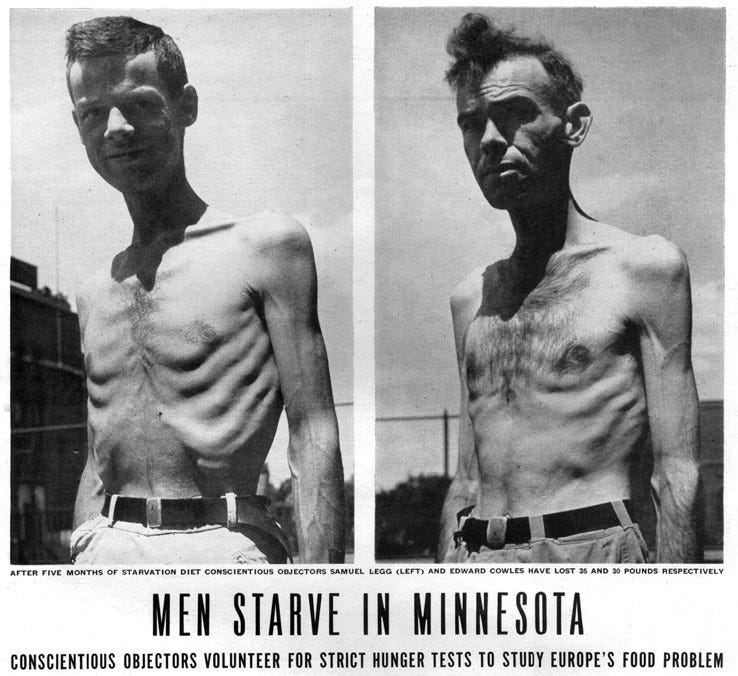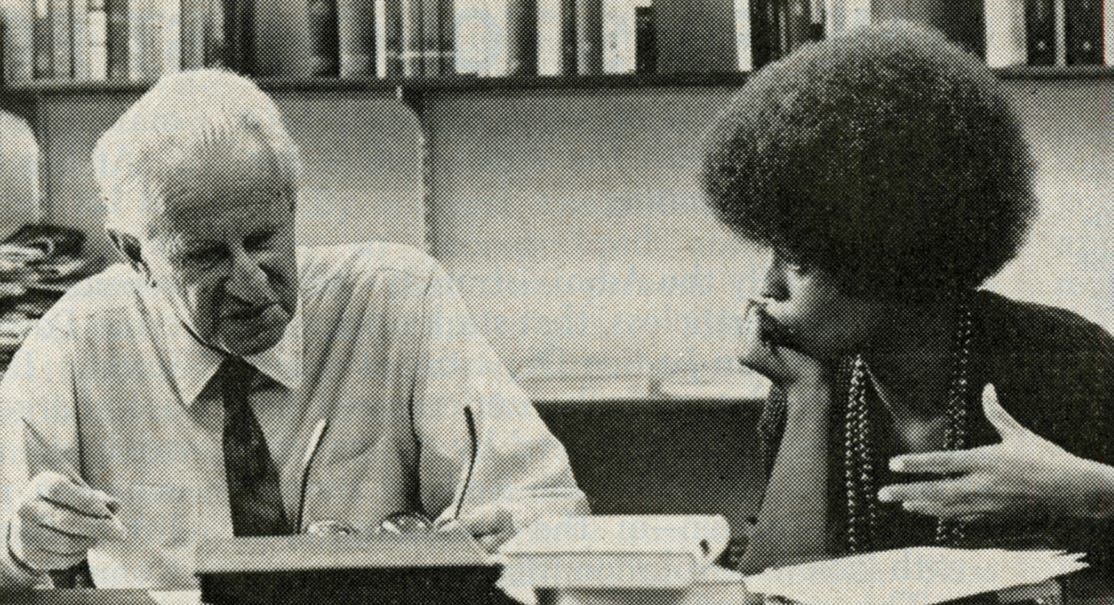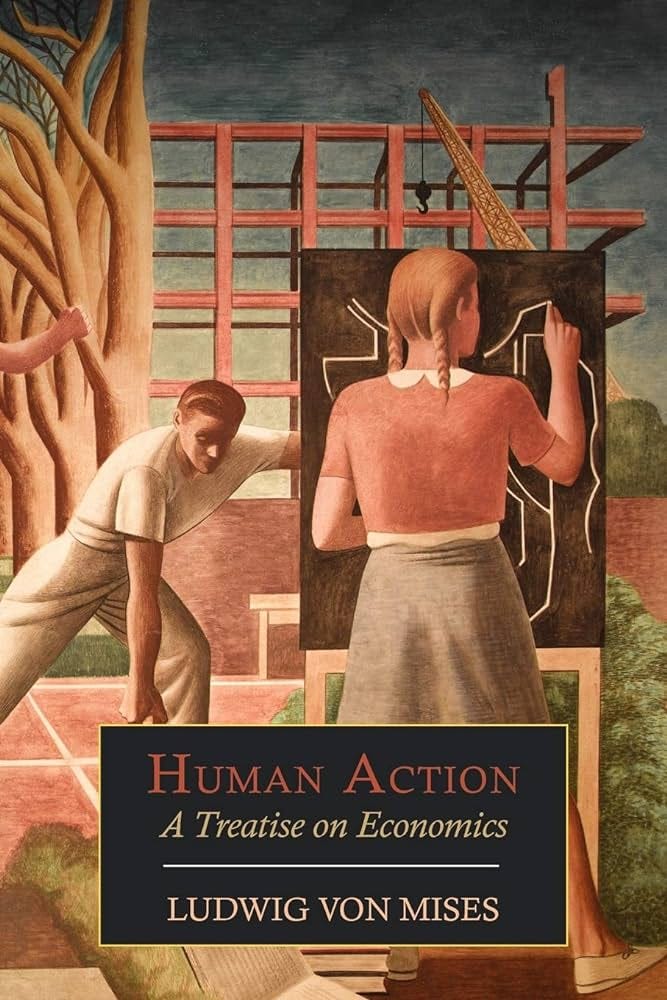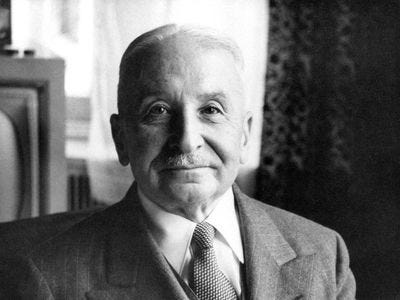Building on earlier discussions of the Frankfurt School, this essay explores how Ancel Keys and Herbert Marcuse, both figures who gained prominence during the era of WWII and the Macy's Cybernetics Conferences, contributed to the centralization of the food system and ideological thought— and how they each inform the other.
Ancel Keys and the Starvation Experiments
Ancel Keys was an American physiologist who had a significant impact on our understanding of diet and health. He is best known for his hypothesis that replacing dietary saturated fat with polyunsaturated fat could reduce cardiovascular heart disease. Keys also made groundbreaking contributions to the study of starvation, publishing 'The Biology of Human Starvation' in 1950. What sets this work apart is its multidisciplinary approach, combining insights from physiology, psychology, and sociology. This comprehensive perspective makes it a unique source on the subject, aligning with the essay's focus on the multidisciplinary nature of centralization. Much like Keys' work had far-reaching implications on our understanding of diet and health, the concept of 'nutritional starvation' also warrants our attention, especially in the context of systemic issues.
The Concept of "Nutritional Starvation” in Modern Society
In today's society, the concept of "nutritional starvation" is becoming increasingly relevant. While we may not be starving in the traditional sense, the prevalence of processed foods rich in polyunsaturated fats, particularly vegetable oils, has led to a different kind of starvation—one that is nutritional. This shift towards processed foods has been linked to a range of health problems, including obesity, diabetes, and cardiovascular diseases. As we grapple with these health challenges, it becomes imperative to explore the systemic issues that underlie both our nutritional choices and our ideological frameworks, setting the stage for a deeper understanding of figures like Herbert Marcuse.
Bridging the Gap: Systemic Issues in Nutrition and Ideology
Both the phenomenon of nutritional starvation and the ideological frameworks propagated by figures like Herbert Marcuse are symptomatic of broader systemic issues. These issues often stem from a multidisciplinary approach to centralization, affecting not just our physical well-being but also our intellectual and ideological landscapes. Having established the systemic issues that influence both our physical and intellectual well-being, let's delve into the life and work of Herbert Marcuse, a figure who has significantly shaped American ideological discourse.
Herbert Marcuse and Ideological Centralization
Herbert Marcuse, a prominent figure in the Frankfurt School, had a unique role in American intellectual life. Not only was he a philosopher and a Marxist scholar, but he also served in the Office of Strategic Services (OSS), the U.S.'s wartime intelligence agency and the forerunner of the CIA. Between 1942 and 1944, Marcuse and other Frankfurt School intellectuals (Franz Neumann and Otto Kirchheimer) were recruited from American universities by General William "Wild Bill" Donovan, the leader of the OSS. Their work focused on providing analysis of Nazi Germany and contributed to post-war planning.
Marcuse's work with the OSS was first declassified in the mid-1970s and has been collated and published, revealing a rich and multilayered collection of political essays. These essays offer enduring insights into military intelligence, Marxism, Nazi Germany, and the Allied effort in World War II. After the war, Marcuse returned to academia (with funding from the Rockefeller Foundation) and became a significant influence on radical intellectuals and political activists in the 1960s and 1970s, particularly through his work “One-Dimensional Man.”
The Macy's Cybernetics Conferences (discussed in a previous essay) serve as a focal point where the multidisciplinary nature of Ancel Keys' and the Frankfurt School’s work intersected. Both figures were influenced by the centralizing, multidisciplinary tendencies of cybernetics, which gained prominence during WWII. This act of centralization had far-reaching implications, affecting both our food systems and ideological frameworks.
The Application of Marcuse's Theories in American Society
Herbert Marcuse's "One-Dimensional Man" serves as a cornerstone in understanding the intellectual's critique of industrial society and its impact on human freedom. Published in 1964, the book delves into the ways in which industrial society, particularly in capitalist settings, tends to create a populace that is one-dimensional in its thinking, aspirations, and behavior.
The Core Arguments of "One-Dimensional Man"
Marcuse argues that the technological advancements and consumer culture of industrial society have led to a form of social control. People become so immersed in consumerism and the pursuit of material goods that they lose sight of genuine human needs—needs that are spiritual, emotional, and intellectual. This creates a one-dimensional individual, focused solely on the most superficial aspects of life, such as material comfort and physical well-being, at the expense of critical thinking and individual autonomy.
The Impact on American Society
In the United States, Marcuse's theories found resonance among various social movements, including the civil rights movement, feminist movements, and anti-war protests. His critique of one-dimensionality can be seen as a call to action against the conformist tendencies of mainstream American culture. The book served as an intellectual backdrop for those questioning the status quo, from the social injustices of racial segregation to the ethics of the Vietnam War.
Marcuse is the Zero Point
Herbert Marcuse's work, particularly "One-Dimensional Man," offers a scathing critique of industrial society's impact on human freedom. However, there exists an intriguing paradox at the heart of Marcuse's intellectual legacy. While he critiques the centralization and conformity that characterize industrial society, he himself played a role in centralizing philosophical discourse, both through his academic influence and his work with the Office of Strategic Services (OSS).
Marcuse's involvement with the OSS and later his influence in academia contributed to the very centralization he critiqued. His work in intelligence and his academic theories became part of the centralized systems of contemporary American policy and education. The key to understanding the rapid dissemination of “woke” politics is Herbert Marcuse and the Frankfurt School.
Questioning the Authenticity of His Message
This dual role raises questions about the authenticity of Marcuse's perspective. If Marcuse was instrumental in creating centralized systems, how genuine could his critique of such systems be? This paradox adds a layer of complexity to his work, making it both a critique of and a testament to the power of centralization.
The Ethical Implications
The ethical implications of this paradox are significant. It challenges us to consider the complexities involved in critiquing a system while being a part of it. Can one genuinely yearn for freedom and autonomy while contributing to systems that may stifle these very ideals? This question is not just relevant to Marcuse but to any intellectual, artist or activist who operates within the systems they critique (hence the title of this essay series, “June’s Great Escape”).
The Centralization of the Food System
The food system has undergone significant changes over the past few decades, moving from a more decentralized, peer-to-peer structure to a highly centralized one. This centralization has been driven by various factors, including economic efficiency, technological advancements, and policy decisions. While centralization has its advantages, such as the ability to produce food on a large scale and distribute it widely, it also comes with drawbacks, including reduced resilience and increased vulnerability to disruptions.
Economic Efficiency vs. Resilience
The drive for economic efficiency has been one of the primary forces behind the centralization of the food system. Large-scale production and distribution networks allow for cost savings and economies of scale. However, this focus on efficiency often comes at the expense of resilience. Centralized systems are more susceptible to disruptions, such as natural disasters, pandemics, or geopolitical tensions, which can lead to food shortages and increased prices.
The Role of Ideological Influences
Ideological influences have also played a role in shaping the food system. The theories propagated by figures like Marcuse have implications for how we think about farmers and ranchers. These ideologies often prioritize economic efficiency and technological progress over local autonomy and resilience, which can indirectly influence policy decisions related to the food system.
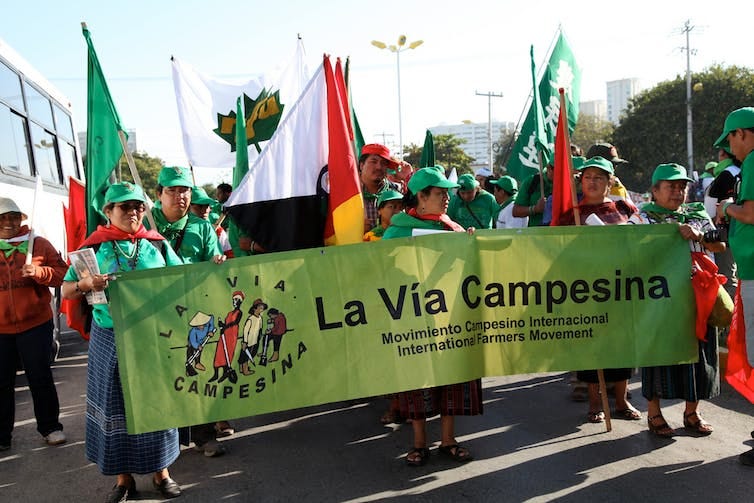
The Unspoken Link: Fiat Currencies and Food Centralization
Before delving into the complexities of ideological influences on the food system, it's crucial to address an often-overlooked factor: the role of fiat currencies. The transition from the gold standard to fiat money systems around the same time as the rise of figures like Marcuse and the centralization of the food system is more than coincidental. Fiat currencies, by their inflationary nature, have a direct impact on the cost structures of food production and distribution.
Fiat currencies, or money that has value because a government maintains it, can centralize power in surprising ways. When a government or central bank can print more money, it holds significant control over the economy. This control extends to food production and distribution. In simple terms, those who are closer to the source of this 'new money'—like big banks or large corporations—have more power to shape our food systems. They often focus on profits rather than the quality or nutritional value of food. This creates a cycle where both our economy and our food choices are influenced by a few centralized entities.
The Inflationary Pressure on Food Producers
In a fiat currency system, the constant creation of new money puts upward pressure on prices, including the cost of food production. This inflationary environment compels food producers to cut corners, often at the expense of nutritional quality. It's as if every time the money printer goes off, our food gets injected with seed oils and other cheap fillers to maintain profit margins.
Nutritional Starvation as a Manifestation of Ideological Centralization
The concept of nutritional starvation can be seen as a manifestation of the ideologies propagated by figures like Marcuse. While Marcuse's work primarily focused on the realms of academia, government, and social structures, the ripple effects of his ideologies can be observed in the centralization of various systems, including the food system.
The Ideological Underpinnings of Nutritional Choices
Marcuse's ideologies, which often prioritize economic efficiency and technological progress, can indirectly influence the choices made in food production, distribution, and consumption. These choices have led to a food system that is efficient but not necessarily resilient or nutritionally optimal. As a result, we find ourselves in a situation where calorie-rich but nutrient-poor foods are readily available, contributing to the phenomenon of "nutritional starvation."
One striking example of this ideological influence is the rise of veganism. The moralism often associated with veganism can be traced back to broader ideological influences, including those propagated by figures like Ancel Keys and Herbert Marcuse. While veganism aims for ethical consumption, it often overlooks the fact that many plant-based foods are sourced from monocropped, debased soils, which contradicts the ethical and health goals of the movement.
The Vicious Cycle of Nutritional Starvation and Ideology
The concept of "nutritional starvation" feeds into a vicious cycle. As people become more reliant on processed foods, the demand for these products increases, further driving the centralization of the food system. This centralization, in turn, makes it more challenging to access nutrient-rich, locally sourced foods, exacerbating the issue of "nutritional starvation."
Moreover, this state of 'nutritional starvation' creates fertile ground for ideological conditioning. When people are nutritionally deprived, they are more susceptible to cognitive impairments that can make them more receptive to ideological narratives. This not only makes the process of ideological conditioning easier but also more profitable, as the same centralized entities often control both the food supply and the ideological narratives disseminated through media and education.
The Shift in Focus Away from Money
Marxist intellectuals like Marcuse were deeply concerned with power dynamics, often critiquing capitalist systems for their exploitation of the working class. However, there's a noticeable shift in focus from the working class to issues of personality, culture, and ideology, especially in the works of the Frankfurt School. This shift can be seen as a decoupling from the economic realities faced by the working class, particularly in the era of fiat currencies.
The Silence on Fiat: A Curious Omission
One of the most puzzling aspects of Marxist critique during this period is the lack of attention paid to the role of fiat currencies in economic systems. The transition from the gold standard to fiat currencies had profound implications for the working class, affecting everything from wages to the cost of living. Yet, this transition is conspicuously absent from the Marxist discourse of the time.
Ludwig von Mises: A Counterpoint to Marxist Silence on Fiat
While Marxist intellectuals like Marcuse focused their critiques on power dynamics, cultural hegemony, and ideological centralization, they conspicuously avoided addressing the role of fiat currencies in economic systems. This omission is particularly glaring given the profound impact that the transition from the gold standard to fiat currencies has had on economic stability, inflation, and, by extension, the quality of food production.
In contrast, Ludwig von Mises, an Austrian economist, was vocal about the pitfalls of fiat currencies and centralized economic planning. His seminal work, "Human Action," serves as a comprehensive critique of socialist and centralized economic systems, including the dangers inherent in fiat currencies. Mises argued that inflation, brought about by the printing of money, leads to economic distortions that affect the most fundamental aspects of society, including (I would argue) the food system.
Mises' critique offers a counterpoint to the Marxist silence on this issue. He delves into the economic realities that are often glossed over in Marxist discourse, such as the inflationary pressures that lead to the debasement of food quality. By focusing on the economic underpinnings of societal issues, Mises provides a more holistic view that accounts for the complexities of both ideological and economic factors.
In practical terms, Mises would likely advocate for a food system that is less reliant on centralized financial mechanisms. He would argue for a return to sound money policies, which could reduce the inflationary pressures that compel food producers to cut corners on nutritional quality. Imagine a food system where the 'money printer' button is replaced by a 'shake your rancher’s hand' button, emphasizing quality over quantity and nutritional value over profit margins. This would be more aligned with Mises' vision of economic freedom and individual choice, breaking the feedback loop of centralization and poor nutrition.
His work suggests that any critique of centralization and power dynamics is incomplete without addressing the economic systems that underlie them. In this way, Mises fills the gap left by Marxist intellectuals, offering a more comprehensive framework for understanding the intricacies of centralization, including its impact on our food system and the phenomenon of nutritional starvation.
Questions for the Left:
Why did Marxist intellectuals, deeply concerned with power dynamics, largely ignore the economic realities brought about by fiat currencies?
How does Mises' focus on the economic aspects, including the role of fiat currencies, offer a more comprehensive critique of centralized systems?
What implications does the Marxist silence on fiat currencies have for their critiques of centralization and power dynamics in modern society?
By examining the work of Ludwig von Mises, we gain a more nuanced understanding of the complexities involved in the centralization of various systems, including the food system. His work serves as a counterpoint to the Marxist silence on the role of fiat in economic systems, adding depth to our understanding of the interconnected issues of ideology, economics, and nutrition.
In conclusion,
the various forms of centralization—ideological, economic, and nutritional—present significant challenges that require multifaceted solutions. While the Beef Initiative offers one approach to these challenges, the broader takeaway is the need for systemic change that addresses the root causes and offers more equitable, sustainable alternatives.
As I reflect on these complexities, I can't help but think about the people who are most affected by them—people like my mother, who often masked her trauma with drugs and alcohol rather than facing her problems with a healthy body and mind. How different might her life have been if she had access to a more resilient, ethical food system?
In my early thirties, I found myself in the midst of the Black Lives Matter riots that shook Philadelphia in 2021. It was then that Islam found me, like a guiding light in a storm. This spiritual revelation made me see just how far I'd wandered from what truly mattered—the very roots of peace and well-being. It was a wake-up call that pulled me away from the Marxist ideologies I'd been entangled with and reconnected me to something far more fundamental: the origin of the food that nourishes me, body and soul.
This profound shift in my life compels me to pose several critical questions: How far can we stray from fundamental truths before we lose our way entirely? Is the path back to these truths paved by reconnecting with the people who cultivate our land and nourish our communities—our local farmers and ranchers? What diversions do our chosen ideologies create, leading us away from these essential truths? And have we allowed ideological constructs to supplant what was once the domain of spiritual belief and divine guidance?
These questions serve as a call to action for each of us. They remind us that the choices we make—whether they're about the food we eat, the ideas we adopt, or the economic systems we support—have profound implications for our well-being and for the kind of society we want to build.

Calls to Action
1. Support Our Cause
Rally Behind The Beef Initiative
You have the power to make a difference. Here’s how you can support our mission.
Upgrade Your Dinner: Get a Beef Box
Invest in the Cause: Make a Donation
Stay Informed: Subscribe for Updates
2. Affiliate Links
Claire & Fritz Tallow Shop
Clara and Fritz invite you to be part of a generational movement. Let's regenerate - our skin, our relationships, our collaborations. Dive into the world of skincare with products crafted from beef tallow. It's time to understand regenerative collaboration. Begin your journey with Clara and Fritz. Let's regenerate together. Our newsletter subscribers get 10% off!
3. Become an Affiliate
Unlock Earnings with Our Affiliate Program
Become part of our movement and earn commissions on the sales you refer. Click below for details.
Learn & Earn: Affiliate Program Information
4. The Beef Initiative Association Council
Join the Beef Initiative Association Council
Our Commitment
At TBIAC, our mission is to deliver unparalleled data-driven insights to micro-processing facilities, both in Texas and nationwide. Guided by unwavering integrity, we rely on verifiable results as we collaborate to nourish local communities sustainably. Your partnership is our strength—let's build a better future from the inside out
5. Get Involved
Play Your Part—Volunteer Today!
Time and expertise are gifts. Offer yours to a cause that matters.
Open Position: Experienced in graphic design or storytelling? We'd love to hear from you.
Connect: Reach out to us at info@beefinitiative.com to get started.







